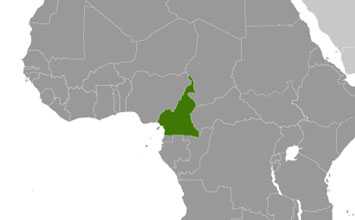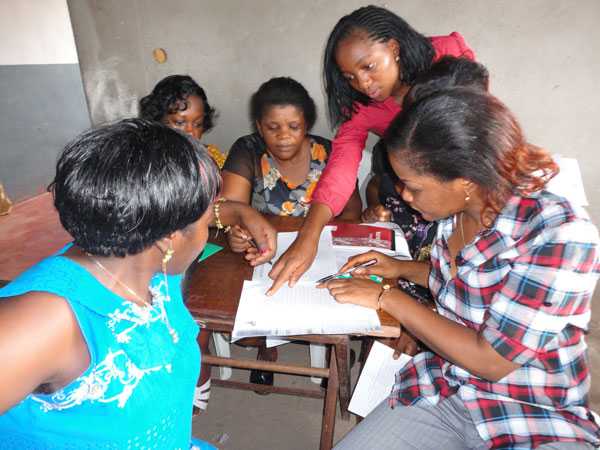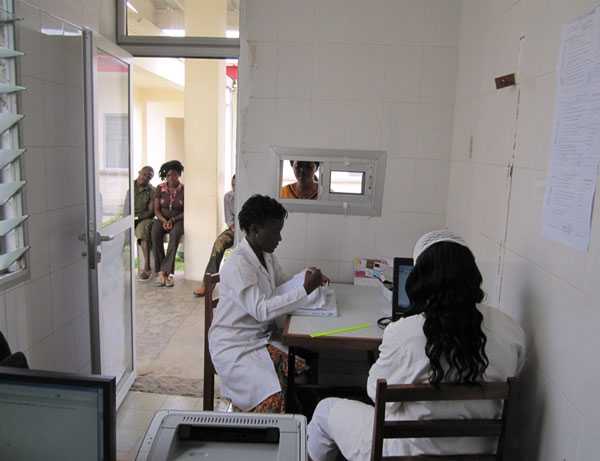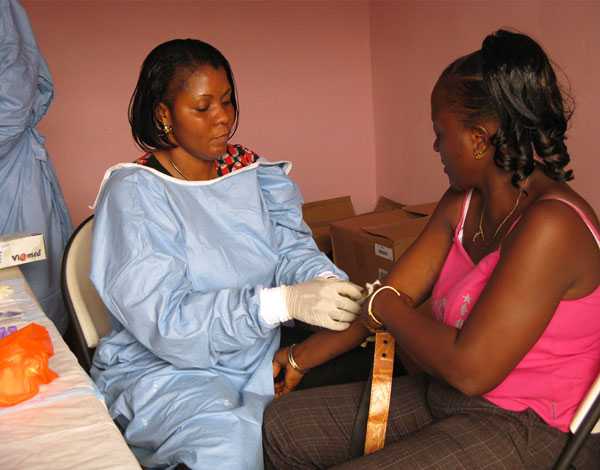
CDC-Cameroon was established in 1998 as an HIV/AIDS research-based field site and transitioned to HIV program support in 2008. CDC’s current focus is HIV prevention, care, and treatment through assistance in the following areas: prevention of mother-to-child HIV transmission, blood safety and health systems strengthening, and lab and strategic information support.
Download Overview Fact Sheet
 Cameroon at a Glance
Cameroon at a Glance
Population: 23,739,000
Per capita income: $2,940
Life expectancy at birth women/men: 58/56 yrs
Infant mortality rate: 57/1000 live births
Source: Population Reference Bureau, 2015, Cameroon
 Top 10 Causes of Death
Top 10 Causes of Death
Source: WHO Country Health Profile: Cameroon
- HIV 13%
- Lower Respiratory Infections 12%
- Diarrheal Diseases 6%
- Malaria 5%
- Stroke 5%
- Ischemic Heart Disease 4%
- Birth Asphyxia & Birth Trauma 3%
- Meningitis 3%
- Preterm Birth Complications 3%
- TB 3%
What CDC Is Doing
- Page last reviewed: May 12, 2017
- Page last updated: May 12, 2017
- Content source:
Global Health
Notice: Linking to a non-federal site does not constitute an endorsement by HHS, CDC or any of its employees of the sponsors or the information and products presented on the site.



 ShareCompartir
ShareCompartir


 Through the U.S. President’s Emergency Plan for AIDS Relief (PEPFAR), the CDC Cameroon Office provides technical assistance to help the Ministry of Health (MOH) implement an effective, efficient HIV program. Using a data-driven approach, CDC is working closely with the MOH to tailor their HIV national response to the unique characteristics of the local epidemic for maximum health impact.
Through the U.S. President’s Emergency Plan for AIDS Relief (PEPFAR), the CDC Cameroon Office provides technical assistance to help the Ministry of Health (MOH) implement an effective, efficient HIV program. Using a data-driven approach, CDC is working closely with the MOH to tailor their HIV national response to the unique characteristics of the local epidemic for maximum health impact. CDC is helping Cameroon develop and implement a National Strategic Laboratory Plan and Policy. It also helped Cameroon launch a national laboratory quality assurance program, including its first national proficiency testing program which currently has 156 sites enrolled and participating in the program and covers all regional and district government health facilities in the North and far North regions.
CDC is helping Cameroon develop and implement a National Strategic Laboratory Plan and Policy. It also helped Cameroon launch a national laboratory quality assurance program, including its first national proficiency testing program which currently has 156 sites enrolled and participating in the program and covers all regional and district government health facilities in the North and far North regions. A Field Epidemiology Laboratory Training Program (FELTP) regional training program was launched in Cameroon in 2010 and with support from the GATES foundation; it serves three Central African countries (DRC, CAR and Cameroon). FELTP trains health professional and prepares them to respond to the challenges of detection, prevention and control of potentially epidemic diseases including disease surveillance and proper management of epidemic response. Thirty-five (35) FELTP fellows have now been trained.
A Field Epidemiology Laboratory Training Program (FELTP) regional training program was launched in Cameroon in 2010 and with support from the GATES foundation; it serves three Central African countries (DRC, CAR and Cameroon). FELTP trains health professional and prepares them to respond to the challenges of detection, prevention and control of potentially epidemic diseases including disease surveillance and proper management of epidemic response. Thirty-five (35) FELTP fellows have now been trained.